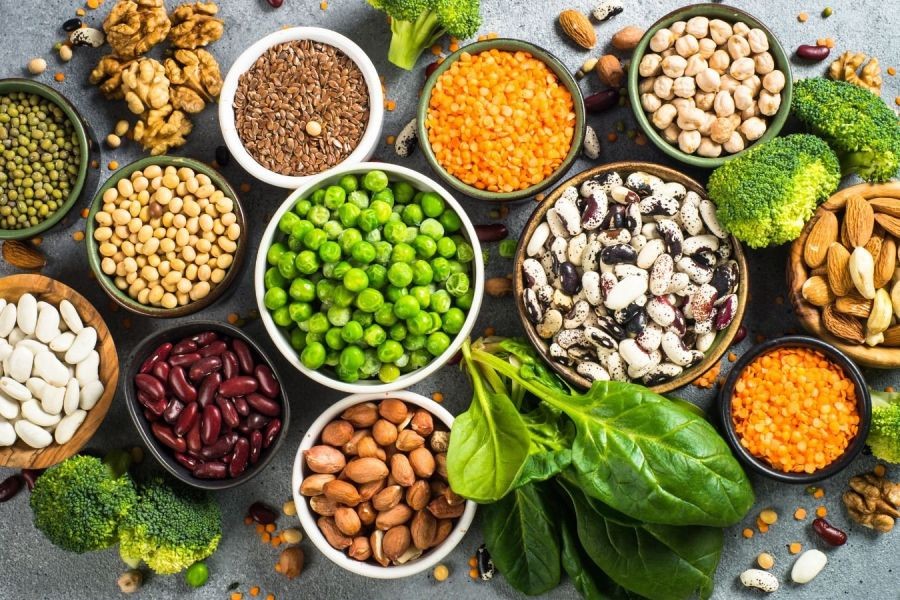In recent years, the debate between consuming red meat versus plant-based protein has intensified, especially with growing environmental concerns and health consciousness. For Australians, this choice is not merely about dietary preferences but also about environmental responsibility and economic implications. The red meat industry has been a longstanding pillar of Australia's economy, but the shift towards sustainable eating habits is prompting many to reconsider their protein sources.
The Environmental Impact
Australia's agriculture sector plays a crucial role in its economy. According to the Australian Bureau of Statistics (ABS), livestock farming, notably cattle and sheep, contributes significantly to Australia’s GDP. However, this industry is also a major source of greenhouse gas emissions. The Australian Department of Agriculture reveals that livestock emissions account for approximately 10% of the country's total greenhouse emissions, primarily methane from enteric fermentation.
Conversely, plant-based proteins, such as legumes, nuts, and grains, generally have a lower environmental footprint. A report from the Commonwealth Scientific and Industrial Research Organisation (CSIRO) suggests that plant-based diets could reduce water usage and greenhouse gas emissions significantly. This shift could align with Australia's commitment to achieving net zero emissions by 2050, as outlined in the government's climate policies.
Economic Considerations
The red meat industry in Australia is not just about food production; it's a substantial economic driver. The industry supports around 189,000 jobs and generates billions in export revenue annually. However, the rise of plant-based alternatives presents both a challenge and an opportunity. The plant-based sector is projected to grow exponentially, with the Plant-Based Foods Association Australia (PBFAA) estimating a market value of $3 billion by 2030.
Adapting to these changes can provide economic resilience. As seen in global markets, regions that quickly adapt to plant-based innovations often see new job creation in food technology and agriculture. For instance, companies in Europe and North America focusing on plant-based innovations have reported increased revenues and expanded market share, a trend that could replicate in Australia.
Health Implications
From a health perspective, red meat is a rich source of essential nutrients such as iron, zinc, and B vitamins. However, excessive consumption has been linked to various health issues, including cardiovascular diseases and certain cancers, according to the World Health Organization (WHO). In contrast, plant-based proteins offer numerous health benefits, including lower cholesterol levels and reduced risk of chronic diseases. Health experts in Australia advocate for a balanced diet incorporating both sources, emphasizing moderation and variety.
Case Study: V2Food – A Local Success Story
V2Food, an Australian plant-based meat company, exemplifies how the country is adapting to the global shift towards sustainable food sources. Founded in 2019, V2Food quickly positioned itself as a leader in the plant-based sector. The company produces meat alternatives using locally sourced ingredients, aligning with consumer demand for sustainable and ethical products.
Problem: As consumer preferences shifted, V2Food identified a growing demand for plant-based alternatives in the Australian market.
Action: The company invested in research and development to create products that mimic the taste and texture of real meat. V2Food collaborated with CSIRO to enhance the nutritional profile of its products, ensuring they meet dietary needs while being environmentally friendly.
Result: Within two years, V2Food expanded its product line and distribution channels, resulting in a 65% increase in market share. The company’s success underscores the potential for growth in the plant-based sector and the importance of innovation in meeting consumer demands.
Takeaway: V2Food's success illustrates the viability of plant-based alternatives in Australia. As consumer preferences evolve, businesses that innovate and adapt to these changes can thrive in the competitive food industry.
Myth vs. Reality: Common Misconceptions
- Myth: "Plant-based proteins lack essential nutrients." Reality: Modern plant-based products are fortified with essential nutrients, offering a complete nutritional profile.
- Myth: "Red meat consumption is unsustainable." Reality: Sustainable farming practices are reducing the environmental impact of livestock farming.
- Myth: "Plant-based diets are more expensive." Reality: While some products may cost more, overall plant-based diets can be cost-effective when planned properly.
Future Trends & Predictions
The future of protein consumption in Australia will likely involve a balanced approach, integrating both red meat and plant-based proteins. As technology advances, plant-based products will become more accessible and affordable, further encouraging sustainable eating habits. By 2030, it's anticipated that plant-based foods could capture up to 30% of the global protein market, with Australia playing a significant role in this transition.
Conclusion
The choice between red meat and plant-based proteins is not just a matter of personal preference but a complex decision influenced by environmental, economic, and health factors. For Australians, embracing a balanced approach can lead to healthier lifestyles and a more sustainable future. As the market evolves, both industries can coexist, contributing to economic growth and environmental sustainability.
What’s your take on this dietary shift? Share your thoughts and join the discussion on how Australia can lead in sustainable food practices!
People Also Ask
- How does the shift to plant-based diets benefit Australia's economy? The shift can create new jobs in food tech and agriculture, with the plant-based sector projected to reach a $3 billion market value by 2030.
- What are the biggest misconceptions about plant-based diets? A common myth is that they lack essential nutrients. Modern plant-based products are fortified to provide a complete nutritional profile.
Related Search Queries
- Red meat industry in Australia
- Sustainable eating habits
- Plant-based protein market growth
- Environmental impact of livestock farming
- Health benefits of plant-based diets

































rabehagreville
10 months ago